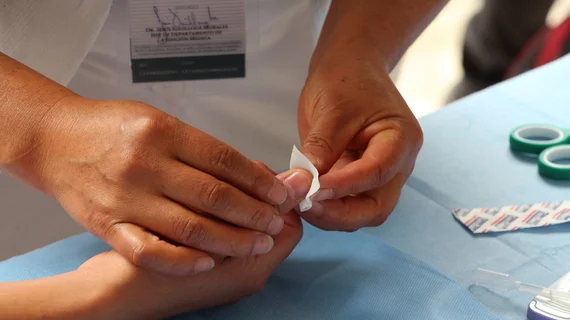Top 11 in-demand healthcare jobs
More healthcare professionals are desperately needed over the next decade, but some roles are more in demand than others.
Overall, the healthcare field is expected to grow 16% over the next 10 years. Citing data from the Bureau of Labor Statistics, CNBC ranked the 11 most in-demand healthcare jobs as follows:
- Nurse practitioners. Projected growth rate: 52.2%
- Occupational therapy assistants. Projected growth rate: 36.1%
- Physical therapist assistants. Projected growth rate: 35.4%
- Home health and personal care aides. Projected growth rate: 32.6%
- Massage therapists. Projected growth rate: 32.2%
- Physician assistants. Projected growth rate: 31%
- Speech-language pathologists. Projected growth rate: 28.7%
- Genetic counselors. Projected growth rate: 26.2%
- Physical therapist aides. Projected growth rate: 25.3%
- Athletic trainers. Projected growth rate: 23.4%
- Respiratory therapists. Projected growth rate: 23%
The healthcare sector will add 2.6 million new jobs to the economy––more than any other field. An aging population, plus the exodus of some current healthcare professionals after the COVID-19 pandemic, are driving the high demand for more healthcare jobs in the future.
“The COVID-19 pandemic has really exacerbated challenges for recruiting and hiring front end staff,” Lea Tal, CEO of healthcare recruiting firm TAL Healthcare, told CNBC. “These are the people who are working in offices as aides, assistants or taking your blood, for example, and they’re usually earning only about $20 an hour.”
See the full story below:

